more than just chicken rice
Nichelle Tan Yunlin

Despite being a small dialect group, the Hainanese community created the ever famous
Hainanese chicken rice. But what else do we know beyond that?, Are we just chicken rice? Through her project, Nichelle reflects
on her upbringing in a multi-dialect household and reconciles her disconnect with Hainanese culture.
more than just chicken rice reintroduces Hainanese culture through its culinary heritage
by depicting each dish with its own visual identity.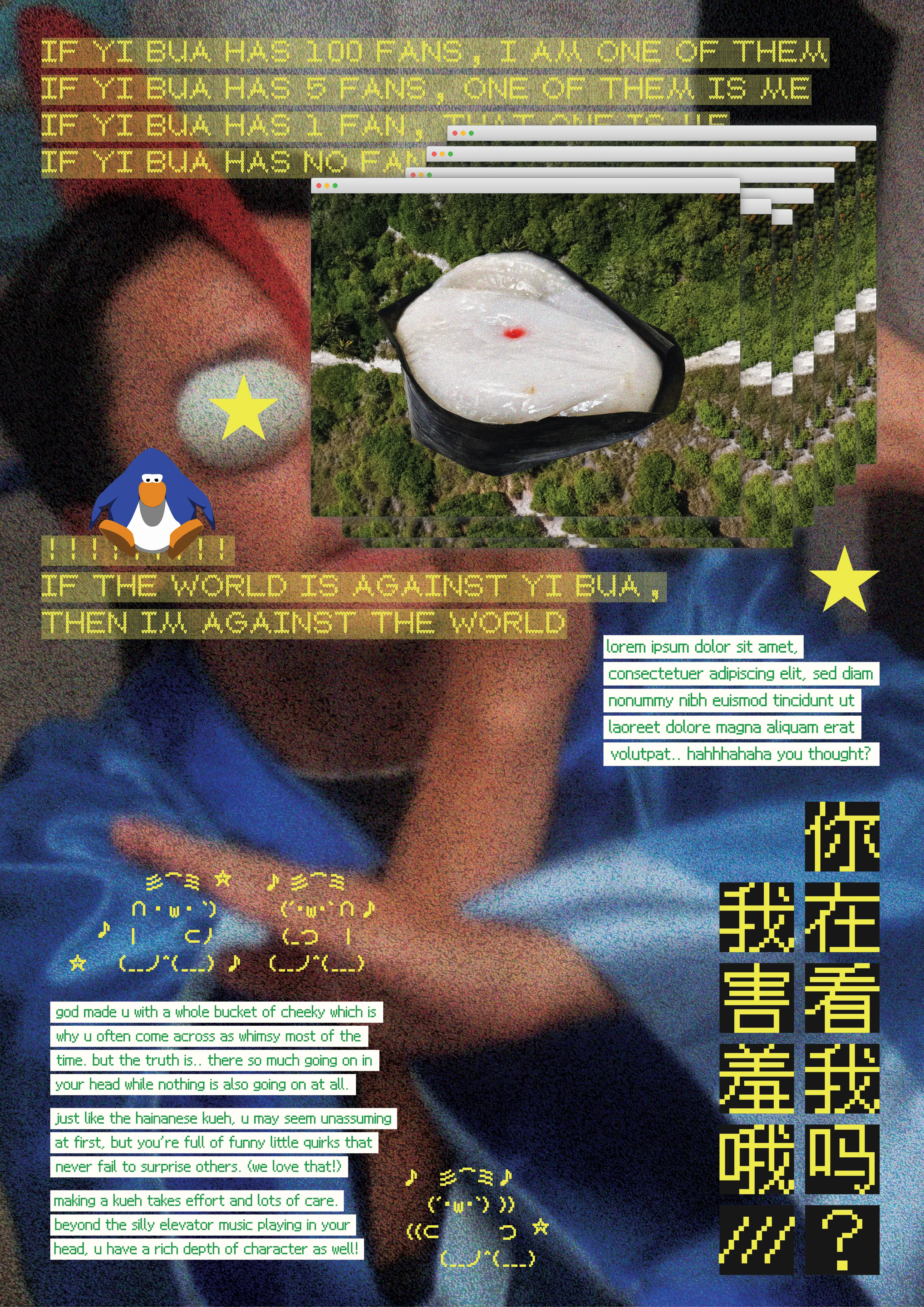
Can you introduce your background? Did you grow up exposed to Hainanese culture?
I would say that I come from a pretty close knitted family. I think I was more interested in dialects because in my house, we actually speak a lot of different dialects. My parents would speak Hokkien to each other. Then, they speak Cantonese to my grandmother. My grandmother would speak Cantonese to me and my sister too. But for me and my sister, to my parents, we'll speak in Mandarin, but together we'll speak English. So we always have different languages just mixed around, but there was no Hainanese. I felt a bit sad in a way, like, I know all the other dialects, but I don't have any exposure to my own.
My dad's dad is Hainanese, so naturally we follow that. On my mother's side, it's a mix of Hokkien and Hakka. My dad said he didn't learn much from his dad either because my grandpa would go out to work. He was mostly brought up by my grandmother. So he's very fluent in Cantonese, but there's no Hainanese in the house, like at all.
Now knowing that you didn't really grow up learning about Hainanese culture, what knowledge did you have of Hainanese culture?
I think the only thing I knew was Hainanese pork chop. That was the only thing. And I think my mom used to say that Hainanese have very flat heads. The back of our heads are very flat, she said. But I don't know if it's accurate? I don't know. Just random bits, but other than that, nothing at all. And my grandfather passed very early on, so I couldn't ask him anything.
Could you describe your outcomes, as well the aim or goal of your project?
The goal is not so much to push out dialect in the form of how Singapore
Chinese Cultural Centre does it — in a very curatorial way. I think it's just more of a personal
project. To me the fastest way to learn about culture is through food.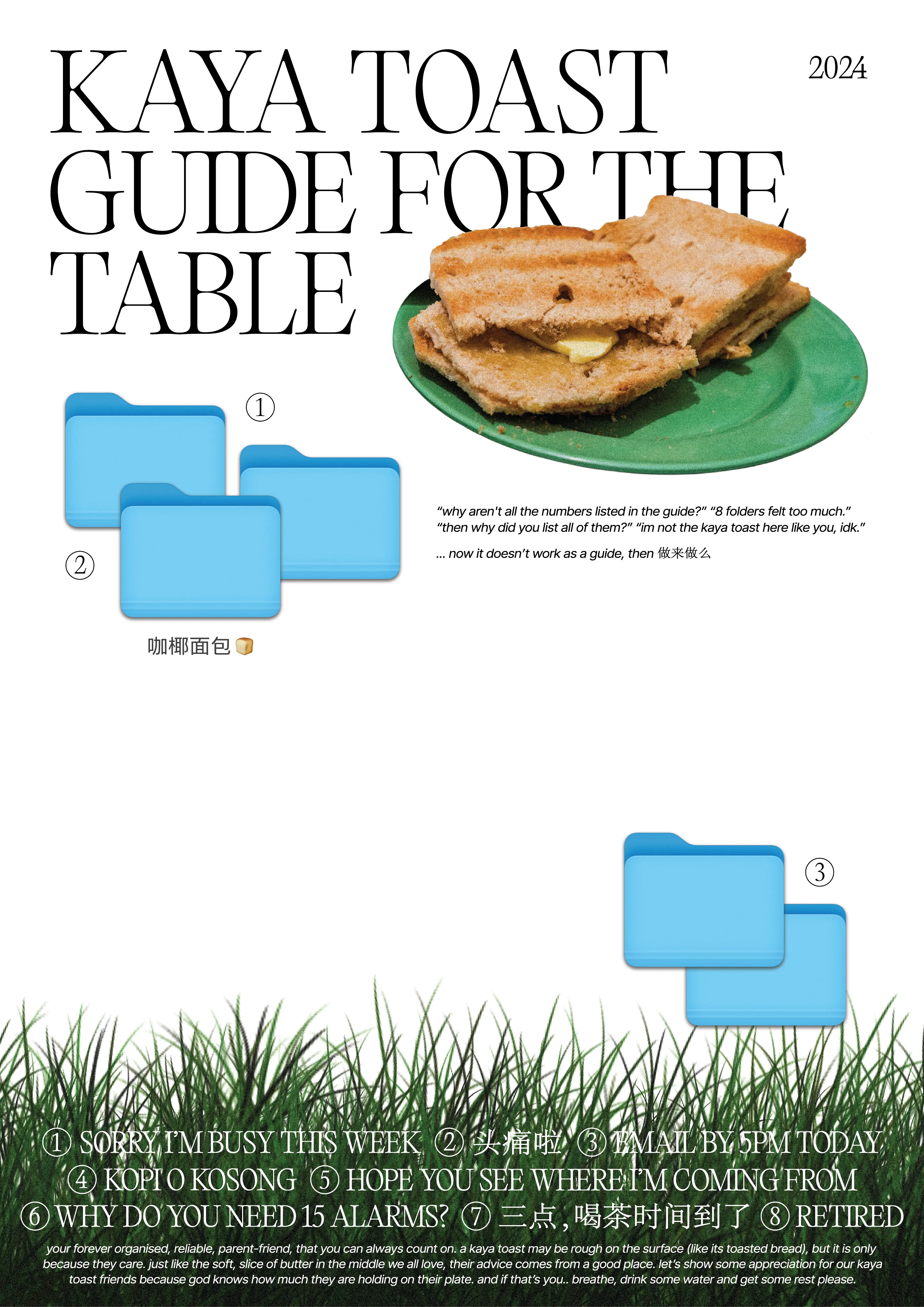 If you were to think about
Japanese culture, you’d think of sushi; then korean is kimchi. So I thought of using that to be able
to show people what Hainanese culture is like and also in a way, I don't really know a lot about
Hainanese culture except the food. But a big part of Hainanese culture is like F& B related, so it's
quite fitting.
If you were to think about
Japanese culture, you’d think of sushi; then korean is kimchi. So I thought of using that to be able
to show people what Hainanese culture is like and also in a way, I don't really know a lot about
Hainanese culture except the food. But a big part of Hainanese culture is like F& B related, so it's
quite fitting.
I thought of how to visualise all these foods in a way that people will be able to understand,
without even seeing the actual food. Let's say someone from another country were to see chicken
rice, they'll still be able to get the feel. That's why I'm making five zines for each food that
I'll be showcasing and then to tie that in there will be a personality quiz. It's just to tie in
different vibes, personality, visual language, to the food so that people can understand it more. So
chicken rice will be chill,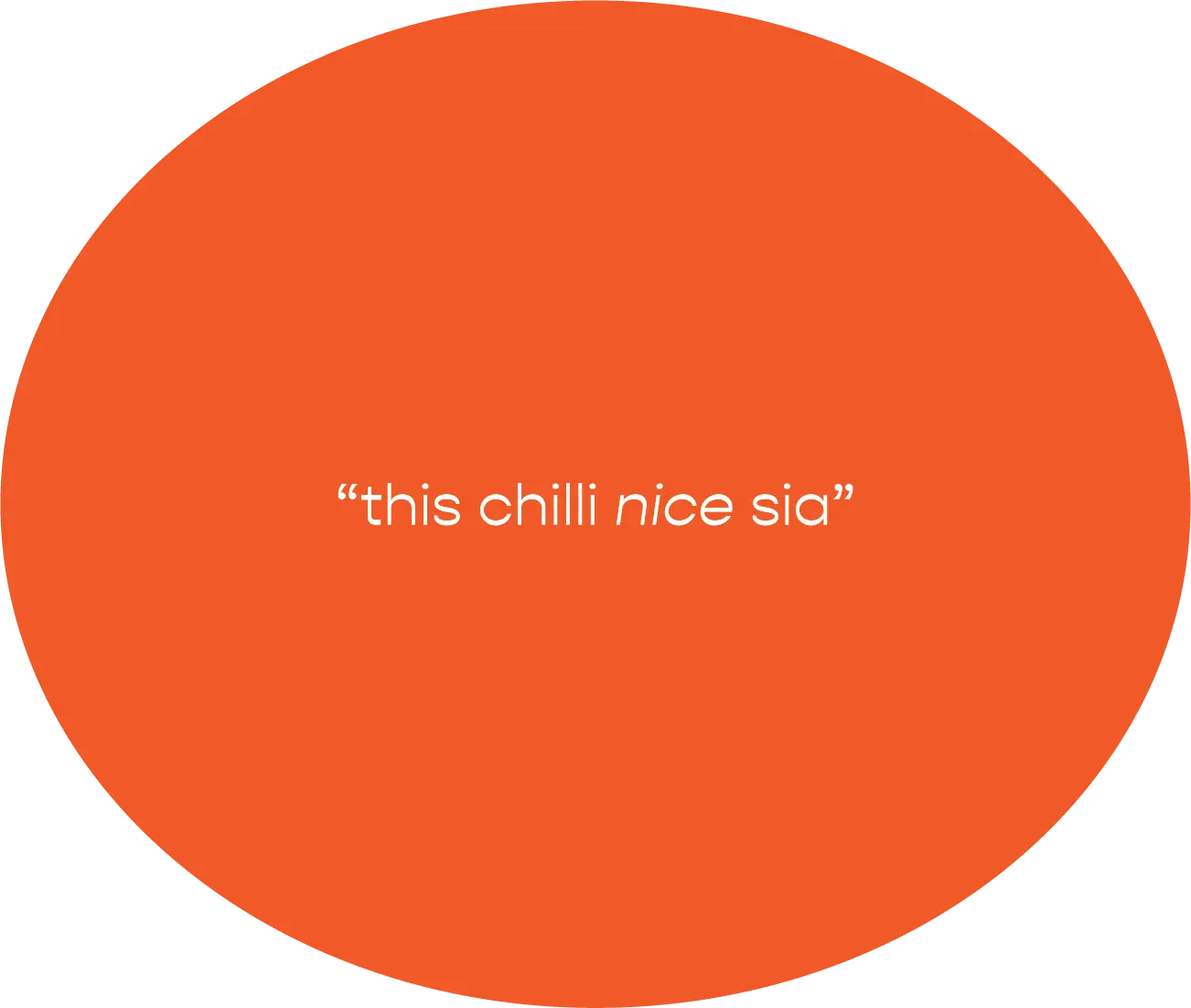 but maybe chicken poop dessert is intimidating.
but maybe chicken poop dessert is intimidating.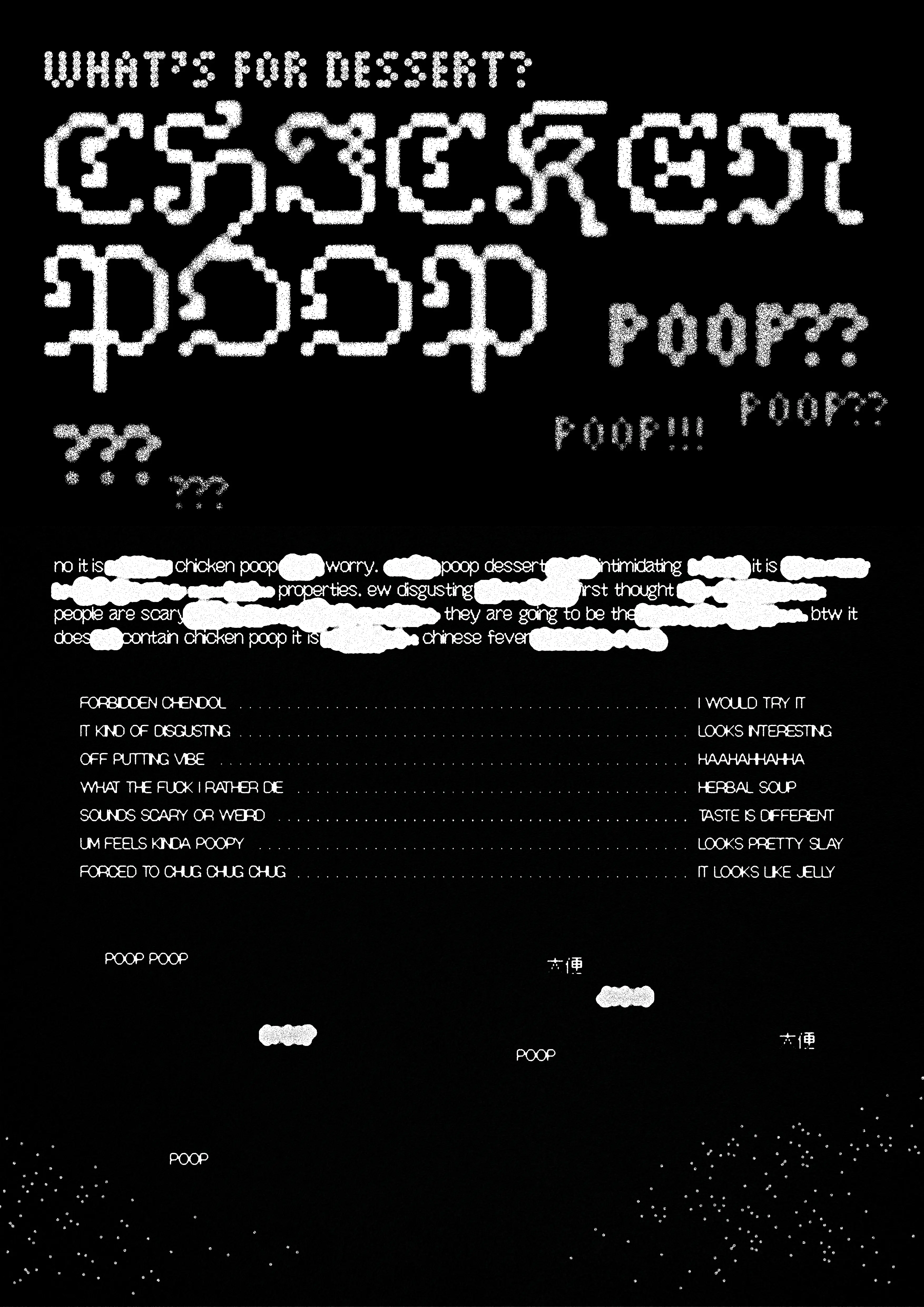
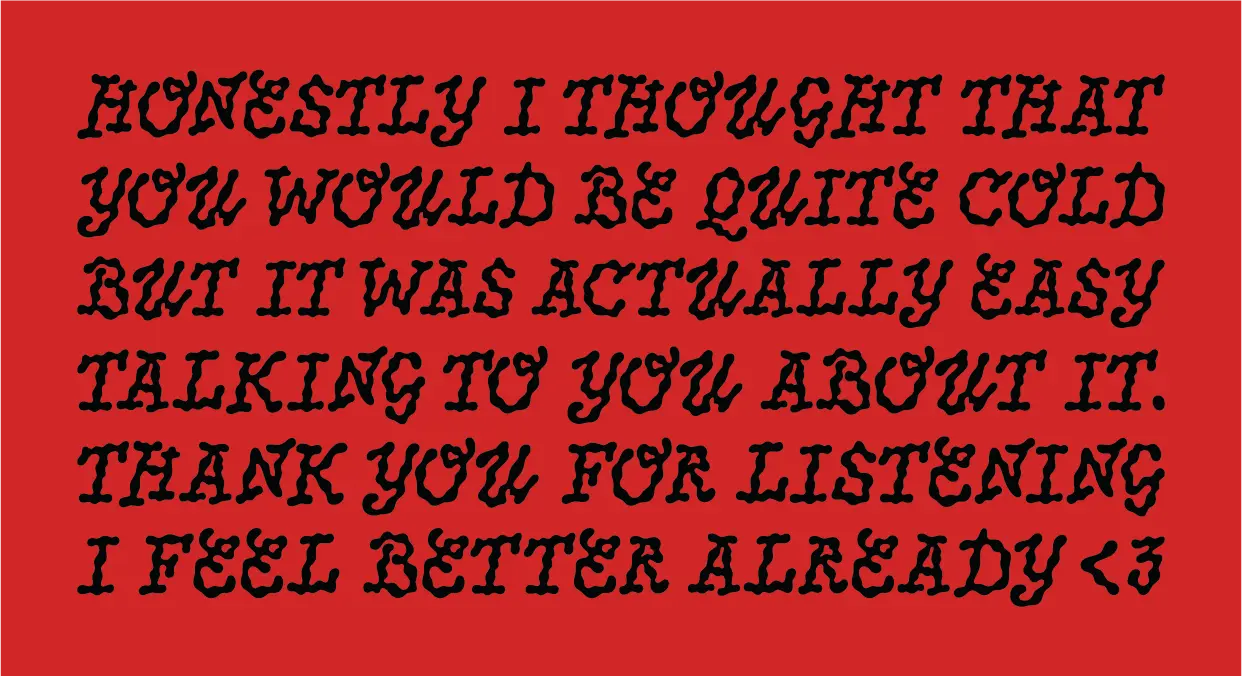
In the span of your project, has there been anyone that you've consulted, especially about Hainanese culture?
I tried to talk to my family as much as I could, but they don't really know
much about Hainanese culture. And ever since my grandfather passed away, we don't hang out with his
side of the family because they weren't very nice. We just cut off contact since then. There weren't
really many people I could talk to, but I think I have some friends whose parents have friends, and
they did give me a bit of info. If I were to ask, how do I say fuck in Hainanese?
Then
they'll just teach me. So I did learn some words but the foundation is not very deep.
See 寄节 (jì jié), Everyday India in Snapshots, and Kau Faham Bahasa Tak?
See Chit Chat, and Food and the Migrant Diaspora
See Kau Faham Bahasa Tak?, and Paper Offerings Handbook 祭祀品礼俗手册